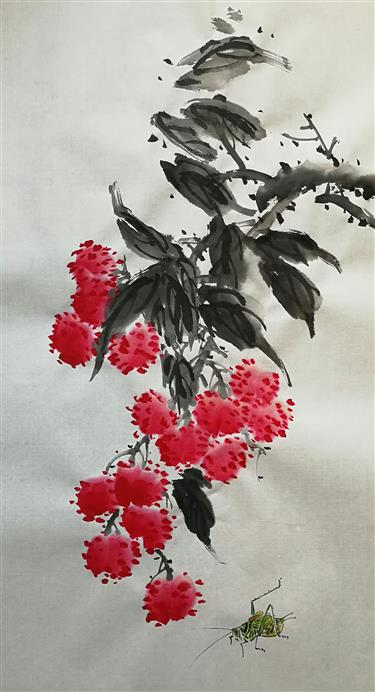Xiaoman heralds coming of summer and crop season

Xiaoman, or Small Grain, is the second solar term for summer after lixia, or Summer Begins, when wheat starts to grow in north China.
Small Grain usually occurs on May 20-22 when the sun’s elliptical longitude reaches 60 degrees. This year it falls on May 21. There is not much difference in temperatures between north and south China, while south China gets more rains.
A Chinese proverb describes the days after xiaoman as the “three periods of waitings” — waiting for sow thistle to prosper, waiting for fine grass in strong sunshine, and waiting for wheat to mature.
There was a tradition of eating seasonal wild vegetables including sow thistle during xiaoman when crops are yet to mature. Though it may sound like a helpless choice, the tradition actually benefits people as the wild vegetables are said to contain rich vitamins and mineral substance.
The arrival of xiaoman also marks the important period for transplanting rice seedlings, harvesting the rapeseeds, and taking care of the silkworms about to cocoon in south China.
Traditionally, the three “wheels” gather pace as xiaoman gets closer. They are water wheel for watering the rice field, spinning wheel for making silk products and oil wheel for squeezing oil from the rapeseeds.

The arrival of xiaoman marks the important period for taking care of the silkworms about to cocoon in south China.
Praying for good harvest
Silkworms are vulnerable as temperature and humidity affect the mulberry leaves, greatly impacting their growth. Therefore, the silkworm growers also consider it necessary to pray to some gods for a good silk harvest.
The Small Grain is said to be the birthday of the Silkworm God, and those in the silkworm business celebrate it by holding ceremonies.
In some regions, people make silkworm-shaped snacks with rice or wheat flour and put them on a pile of dry grass and pray for a good silk harvest. There are plenty of temples of Silkworm God in south China, and silkworm raisers make it a point to visit them.
Regional operas are a regular feature in the silk industry.
Capturing water
Though xiaoman generally brings rain to the southern regions, at times there is limited rainfall in the middle and lower reaches of the Yangtze River. That is usually seen as an indication of poor or less rainfall for the year and puts the farming community under pressure. In such a scenario, water wheel plays an important role to save the crops.
In some villages in Zhejiang Province, a ritual named “capturing water” is held annually around this period. A village elder beats the drums at dawn. A group of men then keep pedaling dozens of water wheels that divert river water into the rice fields.
Some households also make offerings, worshiping the God of Water Wheel — a young white dragon. A cup of plain water is also offered, which is then poured into the fields — a prayer to ensure sufficient water all year round.
Wheat shoots turn yellow
In Shaanxi Province, married daughters visit their parents along with their husbands when the wheat is about to mature. The custom is called kan maishao huang (literally “see the wheat shoots turning yellow”).
It was originally a form of greeting to the parents and helping them take care of the wheat harvest. Traditionally, the young couple would bring gifts such as apricots, cucumbers, green-bean cakes and pork.
















